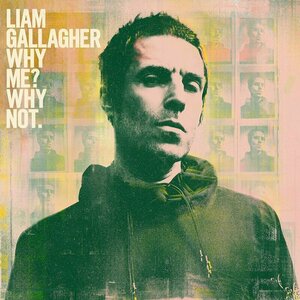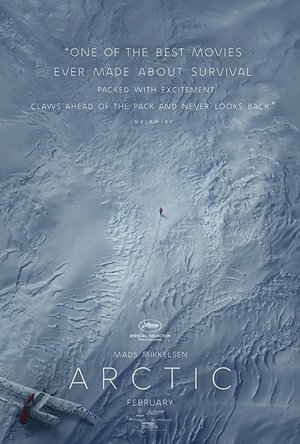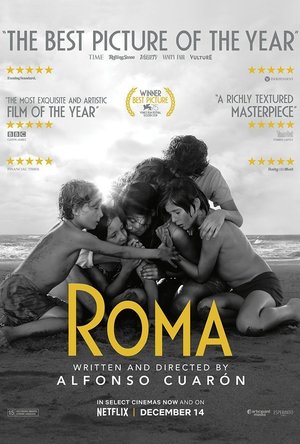Search

Pinnacle Studio Pro
Photo & Video and Music
App
* Best mobile app, Videomaker Best Products of the Year - 2014 * One of Time's 50 Must-Have iPad...

Brainfeed – Educational Videos for Kids
Education and Entertainment
App
Brainfeed – Educational Videos for Kids * Ranked #1 in 70 countries * Top 10 app for Kids 9-11 in...
Gareth von Kallenbach (980 KP) rated Arctic (2019) in Movies
Jul 2, 2019
This week has been one of the coldest on record across much of the United States. The “polar vortex” has brought with it sub-zero temps complete with snow and ice. It seems only fitting that Arctic a survival movie co-written and directed by YouTube star Joe Penna would be releasing the very same week. In his first feature film directorial debut Penna brings both the beauty and the dangers of the Arctic (Iceland in this case) to the big screen.
A lone man identified only as Overgård (Mads Mikkelsen) has crashed his cargo plane somewhere in the arctic. We don’t know how long he has been stranded there, but long enough for him to have carved out a giant S.O.S in the snow. He has converted his downed plane into his new home and goes about the same routine every day. He sets his watch alarm to keep his schedule, which involves catching fish through the ice, and setting out in a different direction each day to manually wind his transponder in the hopes that a rescue will finally come.
One day, a day like countless days before it, Overgård’s transponder turns from red to green and in the distance a helicopter appears. His lucky day soon turns into tragedy as the harsh winds of the Arctic toss the helicopter around like a kite in a hurricane, crashing it to the ground. Overgård quickly runs to the crash site only to find that one of the pilots has died in the crash, and the other (Maria Thelma Smáradôttir) is barely conscious and has a gaping wound in her side. In a scene that could almost be described as humorous (if it wasn’t for the dire situation itself), Overgård crafts a sled out of the helicopter’s sliding door to carry the woman back to the safety of his plane, only to find out the next day that inside the helicopter was an actual rescue sled.
Sadly, it isn’t long before the young pilot’s wound begins to fester that Overgård must make a choice. Stay in the little slice of heaven that he has carved up for himself or risk the forces of nature in an effort to save the woman’s life. With a map he recovered from the downed helicopter, Overgård is able to identify an outpost and carefully plots out the journey that will take them there. The journey he plans for will take several days and has numerous obstacles to overcome. Yet, with a heart that clearly is as large as the vastness of the arctic itself, he realizes he has no choice.
Arctic is a movie with very little dialog, other than an occasional comment to himself or an attempt to rouse his unconscious guest. For a movie that says so little it’s the atmosphere that says so much. The film attempts to capture the harsh conditions that Overgård faces along his journey and does it so brilliantly that you can almost feel the icy weight as it bears down. The audience struggles with every wintery step as if they are not only spectators, but active participants in the journey. The scenery is as awe inspiring as it is deadly. The music seamlessly blends into the environment to a point where you are aware it’s there but doesn’t break the immersion.
Arctic could almost be mistaken as a documentary, a film about one mans survival in one of the most inhospitable places on the planet. Its pacing is deliberate, even if it is a bit slow at times. There is little need to add extra flair or danger into the mix, because nature alone provides it in spades. Arctic is not a movie that will appeal to those looking for non-stop action. At its heart it is really a movie about man vs nature, and nature can be a beast all its own. Arctic is certainly a movie for those looking for something a bit different. For those who are looking for a survival movie that doesn’t take place on a deserted isle, then this is right up your alley. Arctic shows that sometimes realism is far more interesting than fiction.
A lone man identified only as Overgård (Mads Mikkelsen) has crashed his cargo plane somewhere in the arctic. We don’t know how long he has been stranded there, but long enough for him to have carved out a giant S.O.S in the snow. He has converted his downed plane into his new home and goes about the same routine every day. He sets his watch alarm to keep his schedule, which involves catching fish through the ice, and setting out in a different direction each day to manually wind his transponder in the hopes that a rescue will finally come.
One day, a day like countless days before it, Overgård’s transponder turns from red to green and in the distance a helicopter appears. His lucky day soon turns into tragedy as the harsh winds of the Arctic toss the helicopter around like a kite in a hurricane, crashing it to the ground. Overgård quickly runs to the crash site only to find that one of the pilots has died in the crash, and the other (Maria Thelma Smáradôttir) is barely conscious and has a gaping wound in her side. In a scene that could almost be described as humorous (if it wasn’t for the dire situation itself), Overgård crafts a sled out of the helicopter’s sliding door to carry the woman back to the safety of his plane, only to find out the next day that inside the helicopter was an actual rescue sled.
Sadly, it isn’t long before the young pilot’s wound begins to fester that Overgård must make a choice. Stay in the little slice of heaven that he has carved up for himself or risk the forces of nature in an effort to save the woman’s life. With a map he recovered from the downed helicopter, Overgård is able to identify an outpost and carefully plots out the journey that will take them there. The journey he plans for will take several days and has numerous obstacles to overcome. Yet, with a heart that clearly is as large as the vastness of the arctic itself, he realizes he has no choice.
Arctic is a movie with very little dialog, other than an occasional comment to himself or an attempt to rouse his unconscious guest. For a movie that says so little it’s the atmosphere that says so much. The film attempts to capture the harsh conditions that Overgård faces along his journey and does it so brilliantly that you can almost feel the icy weight as it bears down. The audience struggles with every wintery step as if they are not only spectators, but active participants in the journey. The scenery is as awe inspiring as it is deadly. The music seamlessly blends into the environment to a point where you are aware it’s there but doesn’t break the immersion.
Arctic could almost be mistaken as a documentary, a film about one mans survival in one of the most inhospitable places on the planet. Its pacing is deliberate, even if it is a bit slow at times. There is little need to add extra flair or danger into the mix, because nature alone provides it in spades. Arctic is not a movie that will appeal to those looking for non-stop action. At its heart it is really a movie about man vs nature, and nature can be a beast all its own. Arctic is certainly a movie for those looking for something a bit different. For those who are looking for a survival movie that doesn’t take place on a deserted isle, then this is right up your alley. Arctic shows that sometimes realism is far more interesting than fiction.

Why Me? Why Not. by Liam Gallagher
Album Watch
Good things come to those who wait: and so, this summer, Liam Gallagher returns with a new single, a...
Kirk Bage (1775 KP) rated Roma (2018) in Movies
Mar 2, 2020 (Updated Mar 3, 2020)
I watched Roma exactly a week ago today. And although I knew 20 minutes in that I loved it, and at the end that I really loved it, I have taken that time to let it settle within me in before coming to write about it. Some films are so good that you have to do that: let it sink into you fully, before doing anything so trivial as judging and comparing them. Roma is incomparable! I have never seen anything like it, or felt as deeply moved by a film in a long time.
Not that it didn’t get attention at the time of its release, it did, receiving 10 Oscar nominations and winning 3, for best foreign language film, director and cinematography, but it certainly wasn’t seen by as many people as it should have been, despite its presence on Netflix from the start. Having digested it now, and spending some time reading about how and why it was made, I feel a slight mission to recommend it to as many people as I can.
Based on Alfonso Cuarón’s own childhood in Mexico City, and his memories of his family and especially their housemaid, Liboria (Libo) Rodriguez, to whom the film is dedicated, it is a masterpiece labour of love that few directors ever achieve or even attempt to make. After a strong career of exceptional films, including Y Tu Mamá También, Children of Men and Gravity, it was the box office and critical success of the latter that gave Cuarón carte blanche to go and make whatever project he chose. Where many might have been tempted by the big money of superhero or fantasy movies (for which he had some experience with Harry Potter and the Prisoner of Azkaban) he went back to his roots and shot a very personal non-English film, in black and white, where no music exists except that which occurs naturally, and on the surface not much happens.
At least it feels like not much is happening, such is the naturalistic, almost improvised (although it wasn’t) style and pace; shot with a lens capturing detail and nuance with some of the most beautiful photography I have ever had the privilege to see. Truly, an awful lot is happening, but you have to feel and experience it, not simply be told it by the narrative. It takes a while for our Hollywood conditioned brains to accept this at first, and many might come to it and give up half an hour in because of that challenge. I can promise, however, there is not a single thing boring about this film, unless humanity is boring.
Oscar nominated lead Yalitza Aparicio as the shy, loving maid, Cleo, was not an actor before this film. She auditioned and was hand picked by Cuarón from hundreds of young women, without knowing who he was or what the film was about. Apparently, the film was shot in sequence so as not to confuse her emotionally on her extraordinary journey. She is so unassuming and natural that part of you falls in love with her immediately. In time, we almost come to forget we are watching an act at all, and almost become her, such is the empathy she evokes.
Which isn’t an easy ride, as we watch her be gently and then cruelly ignored, mistreated and used; climaxing in one of the most astonishingly painful and jaw-dropping scenes imaginable, and then a scene of such powerful redemption and humanity it instantly breaks the heart and lifts the soul. All the while she never asks for attention or love, but is just herself: a young woman living a difficult but beautiful life in a country and time full of turmoil, prejudice and social change.
The recreation of Mexico in 1970 is so breathtaking, it is hard to imagine at times we are not watching a documentary from that era. But, it is the detail the lens chooses to capture that reminds you this is a visual poem and a love-letter to a time, a place and a family far away in history and the memory of one man (represented by ten year old Carlos Peralta as Paco). At times it evokes the work of the very greatest film artists of all time: Bergman, Fellini, Hitchcock etc. Not one image is wasted or insignificant, from the reflection of the sky in water, to the dog-shit constantly lining the driveway. Everything is chosen and meaningful in the full context of the work.
There is no awkward exposition, no dramatic moments milked for all they are worth, no sequences of heightened excitement that manipulate us; simply truthful moments that hang in the air for what they are, leaving us to decide how we relate to them without ever preaching or teaching us how. In that way, it is a work of such maturity that I doubt many living directors could emulate it at all. The closest comparison I can think of is the personal passion Spielberg put into Shindler’s List, but really it is a moot comparison, and in fact owes much more to films like Haneke’s The White Ribbon.
Can it be faulted? Well, yes, certainly. But, honestly, I don’t see the point in trying. It is as close to perfection a small story of this kind can be. Importantly, I think it is an open film, that allows us to take from it whatever we like, relating to our own experiences and cares. For me, it said that any pain and hardship can be overcome, as long as there is love and beauty walking by its side. A message of no small importance. If you haven’t seen it, I urge you to do so. If you have, then please keep spreading the word. I believe it to be a genuine classic that will endure the criticism of many decades to come. Without a doubt in my mind something very special indeed.
Not that it didn’t get attention at the time of its release, it did, receiving 10 Oscar nominations and winning 3, for best foreign language film, director and cinematography, but it certainly wasn’t seen by as many people as it should have been, despite its presence on Netflix from the start. Having digested it now, and spending some time reading about how and why it was made, I feel a slight mission to recommend it to as many people as I can.
Based on Alfonso Cuarón’s own childhood in Mexico City, and his memories of his family and especially their housemaid, Liboria (Libo) Rodriguez, to whom the film is dedicated, it is a masterpiece labour of love that few directors ever achieve or even attempt to make. After a strong career of exceptional films, including Y Tu Mamá También, Children of Men and Gravity, it was the box office and critical success of the latter that gave Cuarón carte blanche to go and make whatever project he chose. Where many might have been tempted by the big money of superhero or fantasy movies (for which he had some experience with Harry Potter and the Prisoner of Azkaban) he went back to his roots and shot a very personal non-English film, in black and white, where no music exists except that which occurs naturally, and on the surface not much happens.
At least it feels like not much is happening, such is the naturalistic, almost improvised (although it wasn’t) style and pace; shot with a lens capturing detail and nuance with some of the most beautiful photography I have ever had the privilege to see. Truly, an awful lot is happening, but you have to feel and experience it, not simply be told it by the narrative. It takes a while for our Hollywood conditioned brains to accept this at first, and many might come to it and give up half an hour in because of that challenge. I can promise, however, there is not a single thing boring about this film, unless humanity is boring.
Oscar nominated lead Yalitza Aparicio as the shy, loving maid, Cleo, was not an actor before this film. She auditioned and was hand picked by Cuarón from hundreds of young women, without knowing who he was or what the film was about. Apparently, the film was shot in sequence so as not to confuse her emotionally on her extraordinary journey. She is so unassuming and natural that part of you falls in love with her immediately. In time, we almost come to forget we are watching an act at all, and almost become her, such is the empathy she evokes.
Which isn’t an easy ride, as we watch her be gently and then cruelly ignored, mistreated and used; climaxing in one of the most astonishingly painful and jaw-dropping scenes imaginable, and then a scene of such powerful redemption and humanity it instantly breaks the heart and lifts the soul. All the while she never asks for attention or love, but is just herself: a young woman living a difficult but beautiful life in a country and time full of turmoil, prejudice and social change.
The recreation of Mexico in 1970 is so breathtaking, it is hard to imagine at times we are not watching a documentary from that era. But, it is the detail the lens chooses to capture that reminds you this is a visual poem and a love-letter to a time, a place and a family far away in history and the memory of one man (represented by ten year old Carlos Peralta as Paco). At times it evokes the work of the very greatest film artists of all time: Bergman, Fellini, Hitchcock etc. Not one image is wasted or insignificant, from the reflection of the sky in water, to the dog-shit constantly lining the driveway. Everything is chosen and meaningful in the full context of the work.
There is no awkward exposition, no dramatic moments milked for all they are worth, no sequences of heightened excitement that manipulate us; simply truthful moments that hang in the air for what they are, leaving us to decide how we relate to them without ever preaching or teaching us how. In that way, it is a work of such maturity that I doubt many living directors could emulate it at all. The closest comparison I can think of is the personal passion Spielberg put into Shindler’s List, but really it is a moot comparison, and in fact owes much more to films like Haneke’s The White Ribbon.
Can it be faulted? Well, yes, certainly. But, honestly, I don’t see the point in trying. It is as close to perfection a small story of this kind can be. Importantly, I think it is an open film, that allows us to take from it whatever we like, relating to our own experiences and cares. For me, it said that any pain and hardship can be overcome, as long as there is love and beauty walking by its side. A message of no small importance. If you haven’t seen it, I urge you to do so. If you have, then please keep spreading the word. I believe it to be a genuine classic that will endure the criticism of many decades to come. Without a doubt in my mind something very special indeed.


